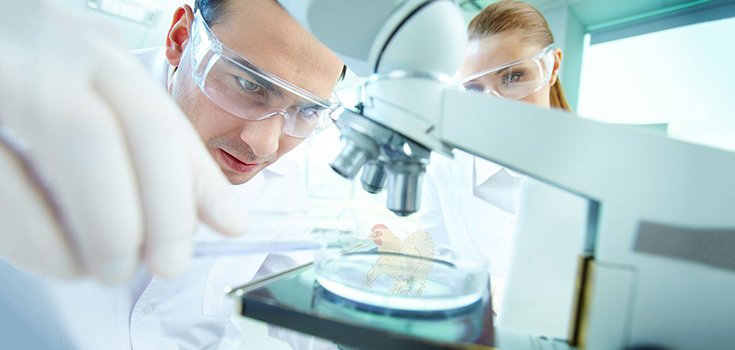Scientists Create Embryos That Are Half-Chicken, Half-Human

Some shocking things have been done in the name of science, things that raised eyebrows and, more importantly, ethical concerns. Scientists at Rockefeller University recently did something eyebrow-raising when they created embryos that were half-chicken, half-human. [1]
If the hair on the back of your neck just stood up, you’re not alone. Some are referring to the experiment as “an abomination.”
The project, led by Ali Brivanlou, involved growing artificial human embryos from stem cells which were then transplanted into chicken embryos. This was reportedly done to avoid breaking ethical guidelines that limit experimentation on human embryos.
Read: Scientists Create Human-Pig Embryo for Transplant Research
According to the university, as soon as the human embryos were introduced to “their avian hosts, the human cells began laying the groundwork for a secondary spinal column and nervous system – an act that clearly announced the presence of a true human organizer.”
Brivanlou went on to say:
“To my amazement, the graft not only survived, but actually gave rise to these beautifully organized structures. Once you transplant the human organizer into a chicken embryo, the language it uses to instruct the bird cells to establish the brain and nervous system is exactly the same as the one used by amphibians and fish.”
Going into the study, Brivanlou and her colleagues didn’t even know if human stem cells had an organizer. They knew that these groups of organizers existed in amphibian and fish embryos, and that they played a vital role in shaping their early developmental structures. [2]
However, due to the aforementioned ethical guidelines, the team didn’t know if a similar organizer existed in humans.
In the U.S., those guidelines dictate that scientists experimenting with human embryos must destroy them by the time they are 14 days old, which is about the amount of time organizer cells begin to form. The human embryonic cells in Brivanlou’s study were implanted into 12-hour-old chicken embryos. [3]
Scientists say the goal of the project isn’t to create some sort of mutant chimera, but to understand how undifferentiated stem cells evolve into a specific kind of tissue vital to regenerative medicine, which can only heal and rejuvenate degenerating tissues, or replace them with grown ones, with the help of stem-cell based technologies. [1]
The lab-made embryos will never be able to think or feel.
Read: Mouse Pancreas Grown in GMO Rats Reverses Diabetes in Mice
This new grafting method could give scientists another tool for learning more about the earliest stages of human development by giving them a better look at cell differentiation and tissue formations, according to Rockefeller University, and help scientists understand when and how things go wrong during the first moments of life.
Brivanlou said:
“If you want to understand something, you must first understand its origins. And if we want to understand the origins of human disease, we must develop ways to work with human cells.”
There is, of course, another ethical issue to consider: When does life begin?
People who believe life begins at conception consider the destruction of human embryos to be unethical. Others believe it’s wrong to hinder scientific research that could heal disease and relieve suffering.
Sources:
[1] Newsmax
[2] The Nation

Rockefeller University to heal disease and relieve suffering???